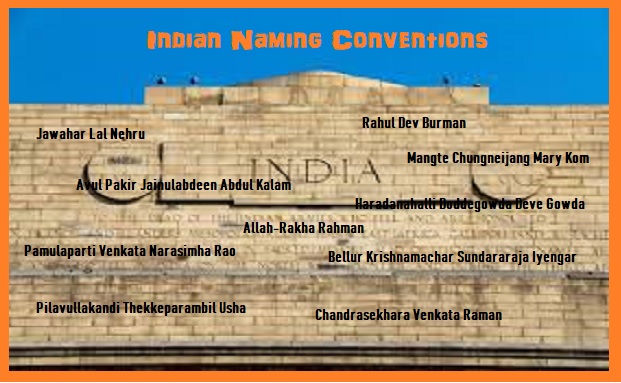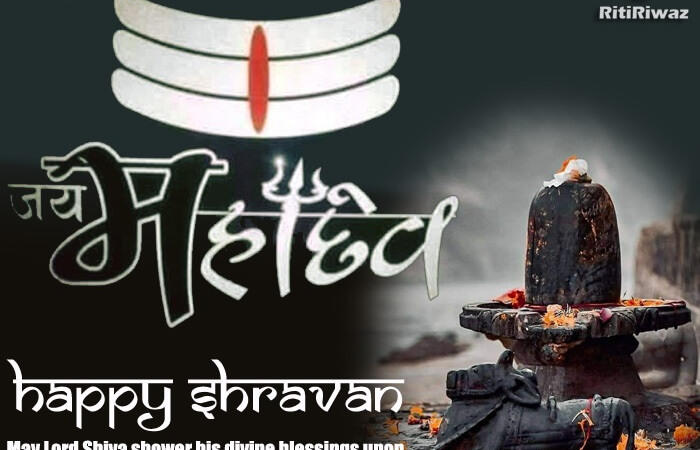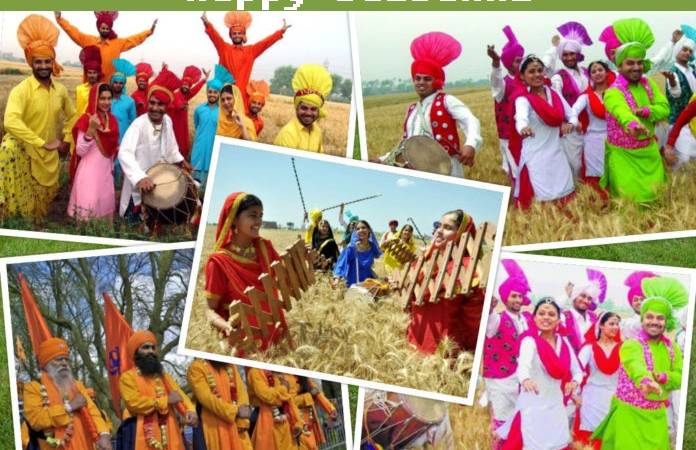Naming Conventions In India

People in different parts of India have different naming conventions. Each region, caste, community, the family has its own conventions. In most parts of India, the first name of a person is used and the surname follows it, but in southern and some of the western states the name follows the father’s name and then the surname of the person.
In Northern India, a person’s name very often has two parts, the first is his/her personal name, the second is the family name. North Indian males have the First name, Middle name, Surname as naming convention, while for females it is the First name, Middle name, Father’s surname before marriage, and Husband’s surname after marriage. Sikhs, however, uses “Singh” (meaning “Lion“) as the middle name for all males and “Kaur” (meaning “Princess“) as the middle name for all the women.
In Western India, a person has three names. The first one identifies the individual, the second one is the father’s name and the third is the family name. In certain places, the person has a different birth name and official name. Birth name is selected according to the person’s horoscope.
In South India, a person has four names. The first denotes the village of origin, the second is the father’s name, the third is the person’s given name and the fourth signifies caste.
In the English-language naming convention, a given “first” name, a surname “family name”, and sometimes a middle name are used.
That system is not used in India, however, Indian’s in the Northern, Western and Eastern regions seemed to adapt more easily to this naming convention. They have a first, middle, and last name, but Southern region Indians have a complex naming system.
A complete, spelled-out southern Indian name typically contains the name of the native (or ancestral) village, the father’s name, the given name, and occasionally the caste title.
Lets us take an example of the famous yoga guru B.K.S Iyengar. The B stands for his birthplace: Belur, the K represents his father’s name (Krishnamachar), the S stands for his first name Sundararajan and Iyengar is his caste name.
Long names with complicated syllables are part of our culture and nowadays, South Indian parents in urban India, seek short names for their children. As South Indian experience difficulties when they go abroad, the issue of surnames does not arise as people use initials. The expansion of initials given in the passport in place of surnames poses problems outside India.
William Shakespeare had said, “What is in a name?” Let us guess he had never encountered a long south Indian name, otherwise, he should have said: “Everything is in a name”.
Suggested Read: Culture of India






